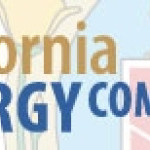- 行业: Energy
- Number of terms: 9078
- Number of blossaries: 0
- Company Profile:
California’s primary energy policy and planning agency
Reducing the value of someone's property through government action without just compensation.
Industry:Energy
Sedimentary rocks containing heavy oil that cannot be extracted by conventional petroleum recovery methods.
Industry:Energy
A document, approved by the responsible regulatory agency,listing the terms and conditions, including a schedule of prices, under which utility services will be provided.
Industry:Energy
Lighting designed specifically to illuminate one or more task locations, and generally confined to those locations. (See California Code of Regulations, Title 24, Section 2- 5302)
Industry:Energy
Credits established by the federal and state government to assist the development of the alternative energy industry. Beginning in 1976, California had a solar tax credit. From 1978 to 1985, both California and the federal government offered tax credits for alternative energy equipment. The state provided a 55 percent tax credit on solar, wind, geothermal and biomass for residential applications. However, the residential tax credits were reduced by applicable federal credits. State commercial tax credits for alternative energy systems in commercial and industrial sectors ranged from 10-15 percent. During this same time, the federal government offered a 40 percent tax credit on residential applications and a 10-15 percent credit on commercial and industrial applications. California in 1990 instituted a new 10 percent tax credit for commercial solar systems in excess of 30 watts of electricity per device. This credit expired December 31, 1993.
Industry:Energy
Degree of hotness or coldness measured on one of several arbitrary scales based on some observable phenomenon (such as the expansion).
Industry:Energy
A technology that lowers the amount of electricity needed for comfort conditioning during utility peak load periods. A buildings thermal energy storage system might, for example, use off-peak power to make ice or to chill water at night, later using the ice or chilled water in a power saving process for cooling during the day. See THERMAL MASS.
Industry:Energy
An entity that owns transmission facilities or has firm contractual right to use transmission facilities.
Industry:Energy
